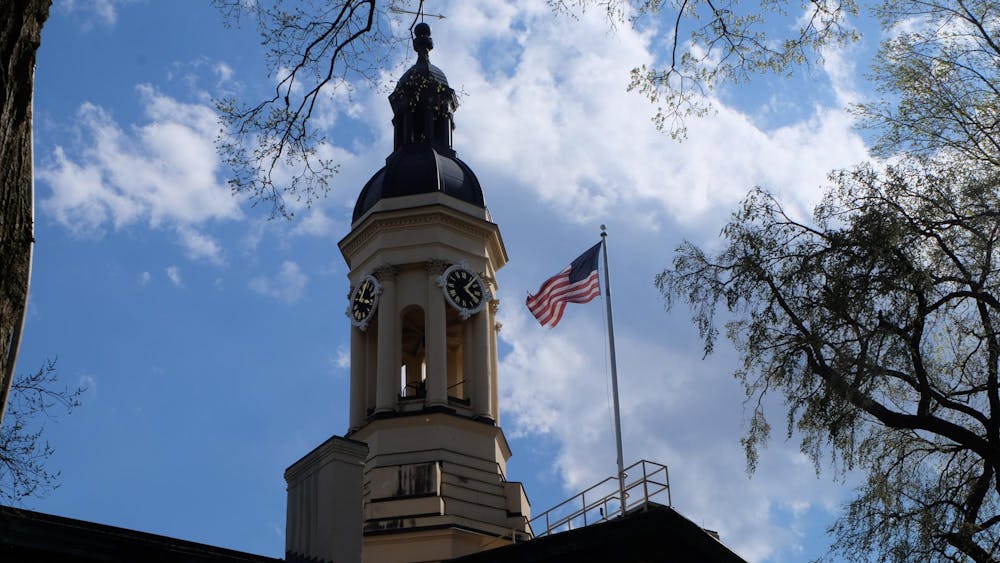After about half of Princeton’s suspended research grants were reinstated over the summer, University President Christopher Eisgruber ’83 told The Daily Princetonian in an interview that the restorations were not tied to any deal with the Trump administration.
“If the question is whether we made any deals: we did not,” he said.
In April, the federal government suspended about $210 million in federal research grants to Princeton from the Department of Energy, NASA, the Defense Department and other agencies. Eisgruber first told the Princeton Alumni Weekly in August that about half the grants and half the funding have been restored.
Several of Princeton’s peer institutions have made varying deals with the Trump administration to have research funding restored. Columbia agreed to wide-ranging measures that included a $200 million fine and a new administrator overseeing several academic departments. The University of Pennsylvania did not pay a fine, but agreed to release a statement saying it would continue policies that reflect the Trump administration’s views on transgender athletes in women’s sports. Brown University, meanwhile, agreed to pay $50 million in local workforce development grants.
In an interview with the ‘Prince’ last week, Eisgruber said that he did not know the rationale for the restoration, nor had the federal government meaningfully communicated the reason for the suspensions to the University in the first place.
“In our case, the suspension of the grants came with a very, I would say, delphic communication from the government,” said Eisgruber. “It merely said that a long series of grants had been suspended in order to determine whether or not they were consistent with statute, regulation, the Constitution of the United States.”
When some research grants were then restored, Eisgruber described the communication from the Trump administration as “equally terse.”
“I can’t really speak to the causation around that. All I can say is I think that’s the right move by the government,” he said.

Eisgruber similarly admitted that he did not know whether Princeton’s conversations in the White House and Capitol Hill had moved the needle on the grants.
“Whenever I was in talking, either to the administration or to people on Capitol Hill, I was talking about the fact that there are common and shared interests here,” he said. “Whether or not our advocacy and the conversations that I just mentioned had any impact, I have to say I don’t know.”
Still, he was hopeful that Princeton would be able to work with the Trump administration, pointing to the idea of “common and shared interest” as a guide in these conversations with the administration.
“They [the Trump administration] have identified quantum science, fusion energy and artificial intelligence as priorities for President Trump and his administration,” said Eisgruber. “Those are all things that we want to work on, and they are things that were affected by the suspension of these grants,” he said.

Eisgruber also asserted that shared interest and cooperation with the government apply beyond the case of Princeton.
“It really matters to the future of this country and things that we should all be able to agree about: America’s health, America’s prosperity, and America’s security, that we find ways to move forward on this compact between the government and universities,” he said.
Cynthia Torres is an associate News editor, and archives contributor. She is from New Bedford, Mass. and typically covers University administration. She can be reached at ct3968[at]princeton.edu.
Please send any corrections to corrections[at]dailyprincetonian.com.








